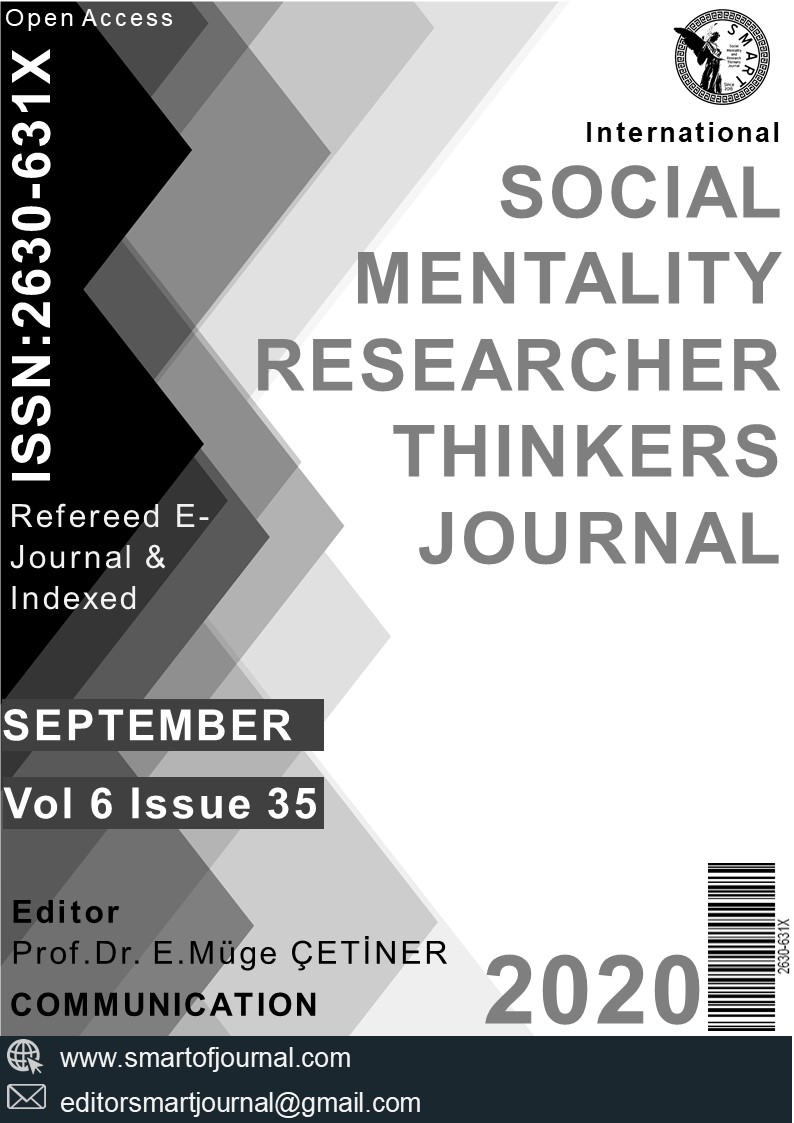Author :
Abstract
Tarih boyunca hukuk sistemlerinde tartışılan en önemli konulardan biri boşanma olmuştur. Dini hukuk çevrelerinde boşanmanın meşruiyeti ve geçerliliği, -bu konuyla ilgili naslar değişik yorumlara elverişli olduğu için- dün olduğu gibi bugün de tartışılan hususlardır. Bununla birlikte İslam hukukunda boşama yetkisinin erkeğin iradesine bağlı olduğu bilinmektedir. Ancak erkeğin de bir beşer olduğu göz önüne alınırsa tasarruf ehliyeti olduğu gibi, ehliyetinin olmadığı bazı haller de söz konusudur. Bu hallere İslâm hukukunda “ehliyet ârızaları” denmektedir. Ehliyet ârızaları, mükellefin tasarruflarını ya tamamen ya da kısmî olarak etkilemekte ve şahsın iradesiyle veya iradesi dışında meydana gelmiş olmasına göre “semâvî ve müktesep” ârızalar diye ikiye ayrılmaktadırlar. Semâvî ârızalar, akıl hastalığı, baygınlık, bunama, hastalık, uyku hali, unutma ve küçüklük halleridir ki mükellefin bu durumlara düşme noktasında bir irade ve ihtiyarı söz konusu değildir. Müktesep ârızalar ise irâdidir. Bunlar: cehalet, sefer hali, hata, hezl yani ciddiyetsizlik ve sarhoşluk gibi hallerdir. Bizim bu çalışmada ele aldığımız “semâvî ârızalar”, vücûb ehliyetini ortadan kaldırmasa da eda ehliyeti ile ilgili bir takım özel durumlar ortaya çıkarmaktadırlar.
Keywords
Abstract
Divorce has been one of the most important issues discussed in legal systems throughout history. The legitimacy and validity of divorce in religious law circles are the issues that are discussed today, as it was yesterday, since the texts on this issue are comfortable. However, it is known that the authority of divorce in Islamic law depends on the will of the man. However, considering that a man is also a human being, as he has authority of disposition, there are some cases of in which he hasn’t the power of disposition. These cases are called "defects of authority" in Islamic law. Defects of authority affect the actions of obliged wholly or partly and are divided into two as “heavenly” and “acquired” depending on whether they occur with or without the will of the person.
Keywords
- Arı, A. (2012). “Uyku”, Diyanet İslam Ansiklopedisi (DİA), (XLII):246, İstanbul.
- Arı, A. (2012). “Uyku”, Diyanet İslam Ansiklopedisi (DİA), (XLII):246, İstanbul. Atar F. (1988). Fıkıh Usulü, MÜ. İFAV Yayınları, İstanbul.
- Bardakoğlu, A. (1994) “ehliyet”, Diyanet İslam Ansiklopedisi (DİA), (X):533-539. İstanbul. Bilmen, Ö. N. (1968). Istılâhât-ı Fıkhıyye Kâmusu, Bilmen Yayınevi, İstanbul.
- Buhârî, A. (1994), Keşfü’l-Esrâr, alâ Usûli’l-Bezdevî, Dâru’l-Kitâbi’l-Arabî, Beyrut. Buhârî, Talak, 11.
- Buhûtî, M. (1982). Keşfü’l-Kınâ’, ân Metni’l-İknâ’, Dâru’l-Fikr, Beyrut.
- Cin, H. & Akgündüz A. (1996). Türk Hukuk Tarihi, Cihan Matbaası, İstanbul, 1996.
- Çalış, H. (2012). Kişiler Hukuku”, (Ed. Talip Türcan), İslam Hukuku El Kitabı, ss. 415-429, Grafiker Yayınları, Ankara.
- Dönmez, İ. K. (1993). “Cünûn”, Diyanet İslam Ansiklopedisi (DİA), (VIII):125, İstanbul.
- Dönmez, İ. K. (2007), “Nisyân”, Diyanet İslam Ansiklopedisi (DİA), (XXXIII):144, İstanbul. Ebu’z-Zehrâ, M. (1948). Ahvali Şahsiye, Dâru’l-Fikr, Beyrut.
- (Heyet), ( 1986). el-Mevsûatü’l-Fıkhiyye, Kuveyt.
- Husarî, A. (1982). Ahval-i Şahsiye, Mektebetü’l-Külliyeti’l-Ezheriye, Kahire.İbn Abidîn, (1992), Reddü’l-Muhtâr, ale Dürri’l-Muhtâr, Dâru’l-Fikr, Beyrut. İbn Kudâme, A. (1997), el-Muğni, Dâru Âlemi’l-Kütüb, Riyad.
- İbrahim, A. (1999). el-Vasît fi Şerhi Kânûni el-Ahvâli’ş-Şahsiyye, Dâru’s-Sekâfe, Ammân.
- Köse, S. (2012). “Aile Hukuku”, (Ed. Talip Türcan), İslam Hukuku El Kitabı, ss. 437-529, GrafikerMâverdî, A. (1994). el-Hâvî’l-Kebîr, Dâru’l-kütübi’l-İmiyye, Beyrut.
- Molla Hüsrev, (1966). Mirâtü’l-Usûl Şerhu Mirkâti’l-Vusûl, Basın Ofset, İstanbul. Nevevî, Y. (ts.). Ravzatu’t-Tâlibîn, Dâru’l-kütübi’l-İmiyye, Beyrut.
- Serahsî, M. (1982). el-Mebsût, Çağrı Yayınları, İstanbul.
- Sertâvî, M. A. (1997). Şerhu Kânûni’l-Ahvâli’ş-Şahsiyye, Dâru’l-Fikr, Beyrût.
- Şaban, Z. (1990), İslâm Hukuk İlminin Esasları: Usulü’l-fıkh (trc. İbrahim Kâfi Dönmez), Türkiye Diyanet Vakfı Yayınları, Ankara.
- Şaban, Z. (1990). İslâm Hukuk İlminin Esasları: Usûlü’l-fıkıh, (trc. İbrahim Kâfi Dönmez), TDVŞirbînî, H. M. (1994). Muğni’l-Muhtâc ilâ Ma’rifeti Meâni Alfâzi’l-Minhâc, Dâru’l-kütübi’l- İlmiyye, Beyrut.
- Ünal, H. (1992). “Baygınlık”, Diyanet İslam Ansiklopedisi (DİA), (V):244, İstanbul.
- Zerkâ, M. (1967). el-Fıkhu’l-İslâmî fî Sevbihi’l-Cedîd (el-Medhalu’l-Fıkhi’l-Âmm), Dımaşk. Zeydân, A. (1976). el-Vecîz fi Usûli’l-Fıkhi, Kurtuba yayınları, Bağdat.
- Zeydân, A. (1979). Fıkıh Usulü, (trc. Ruhi Özcan), Ankara Yüksek Teknik Öğretmen Okulu Ofset, Ankara.
- Zeydân, A. (1994), el-Vecîz, Müessesetü’r-Risâle, Beyrut.
- Zeylaî, C. (1998). Nasbü’r-Ra’ye li-Ehâdîsi’l-Hidâye, Daru’l-Kıble, Cidde.
- Zuhayli, M. (2006). el-Kavâidu’l-Fıkhıyye ve Tatbikâtiha fi’l-Mezâhibi’l-Arba’a, Dâru’l-Fikr, Dimeşk.
- Zuhaylî, V. (1989). el-Fıkhu’l-İslâmî ve Edilletühü, Dâru’l-Fikr, Beyrut.
- Zühaylî, V. (1994). İslâm Fıkhı Ansiklopedisi, (trc. Ahmet Efe v.dğr.), Risale Yayınları, İstanbul. Ahzab, 33/5.
